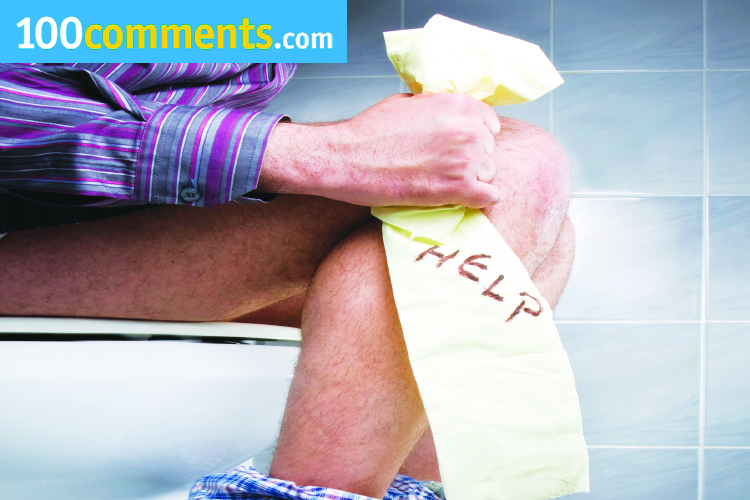Hemorrhoids – you have heard of them, you may have felt them, and if you have them, then you definitely want to get rid of them! Today so many people are dealing with the pain and suffering of hemorrhoids. But not to fret as there are hemorrhoid treatments out there that can help. However, before you choose your treatment, you need to know the basics of hemorrhoids. Best of all, you can avoid hemorrhoids altogether right from the start by following some simple lifestyle habits.
Table of Contents
What are hemorrhoids?
Hemorrhoids are also called piles. They are swollen vein clusters in the anus which can bring discomfort and pain. Sometimes, they are also called “varicose veins” of the rectum. This is because like the common varicose veins you see on the legs, piles are dilated and protruded veins too. Hemorrhoids or piles is basically a condition where the veins around the anus end up getting inflamed and swollen.
This common problem can be painful, but it’s usually not serious. Often this occurs as a result of excessive straining during bowel movement. However, other factors can cause them to occur as well, including ageing, pregnancy, constipation, and even diarrhoea. Veins can swell inside the anal canal to form internal hemorrhoids. Or they can swell near the opening of the anus to form external hemorrhoids.
Types of hemorrhoids
Internal hemorrhoids are those which occur inside the rectal area. As the inner side of the rectum does not have sensitive nerve endings, internal piles are often not obvious and painful, and most people who have them are usually not aware of their presence. However, when these piles get irritated, they may bleed, and the blood may be the sole symptom that will be noticed.
Internal hemorrhoids often become irritated by hard stools rubbing against them when the person is having a bowel movement. As a result, the person may feel a vague discomfort in the anal area and notice some blood on his or her stool. These piles may protrude towards the outer area and may appear like tiny grape-like masses. When they do, they can bring more discomfort to the person.
External piles, on the other hand, are those which appear in the outer area of the anus. Oftentimes, these piles are painful. They can also be itchy. Because of the swelling, they can also develop a kind of burning sensation which can be a great hassle for the person; disabling him or her to go on with normal chores.
What are the symptoms?
There are a variety of different symptoms that you may experience for both internal and external hemorrhoids. These symptoms will last for a few days, but will last longer for serious sufferers. Probably the most common hemorrhoids symptom is bleeding bowel movements. The bleeding are often accompanied with itch and pain around the anus area. They may experience pain when cleaning the anal area too.
Who are affected by hemorrhoids?
Hemorrhoids are a very common problem. Equal numbers of men and women suffer from hemorrhoids. Although hemorrhoids can develop at any age, but the incidence increases after age 30. It is estimated that about half of those aged 50 and above will have hemorrhoids at some time in their life. Many women however develop hemorrhoids during the last 6 months of pregnancy and immediately postpartum.
You Can Prevent Hemorrhoids
Avoid Constipation
- Eat more fibre. Include foods such as whole-grain breads and cereals, raw vegetables, raw and dried fruits, and beans. Limit your intake of low- or no-fibre foods, such as ice cream, soft drinks, cheese, white bread, and red meat.
- Drink 8 to 10 glasses of water each day. Avoid liquids that contain caffeine (such as coffee and tea) or alcohol. These liquids may cause dehydration, which can lead to constipation.
- Stool softeners containing bran or psyllium can be helpful. Sprinkling it on foods or stirring it into fruit juice. Avoid laxatives, another type of medicine that affects the bowels, because they may cause diarrhoea, which can irritate hemorrhoids.
- Avoid foods and beverages that seem to make your symptoms worse. These may include nuts, spicy foods, chilis, coffee, and alcohol.
- Regular, moderate exercise, along with a high-fibre diet, promotes smooth, regular bowel movements.
Practice Healthy Bowel Habits
- Go to the bathroom as soon as you have the urge.
- Avoid straining to pass stools. Relax and give yourself time to let things happen naturally.
- Avoid holding your breath while passing stools.
- Avoid reading while sitting on the toilet. Get off the toilet as soon as you have finished.
Modify Your Daily Activities
- Avoid prolonged sitting or standing. Take frequent short walks.
- If possible, avoid lifting heavy objects frequently. If you must lift heavy objects, always exhale as you lift the object. Don’t hold your breath when you lift.
- If you are pregnant, sleeping on your side will lower pressure on the blood vessels in your pelvis. This can help keep hemorrhoids from becoming bigger.
















